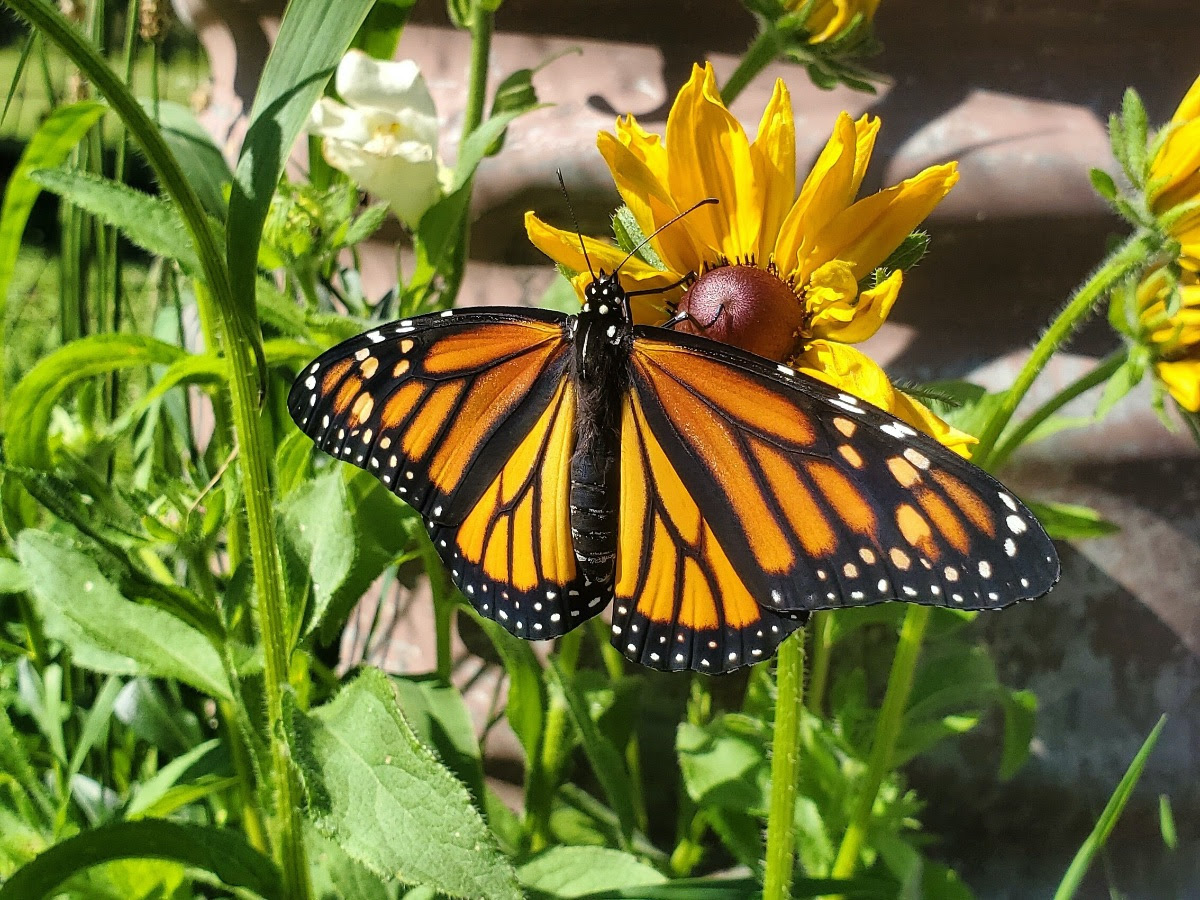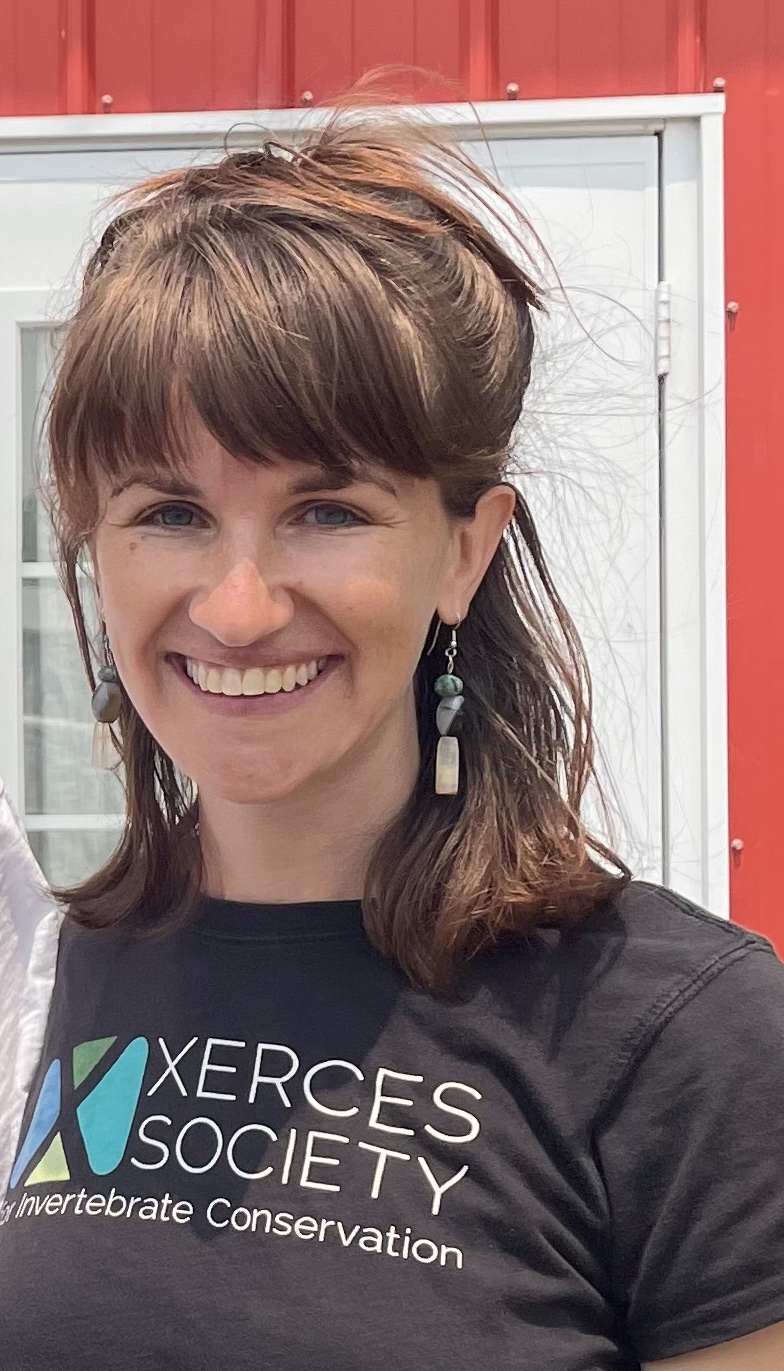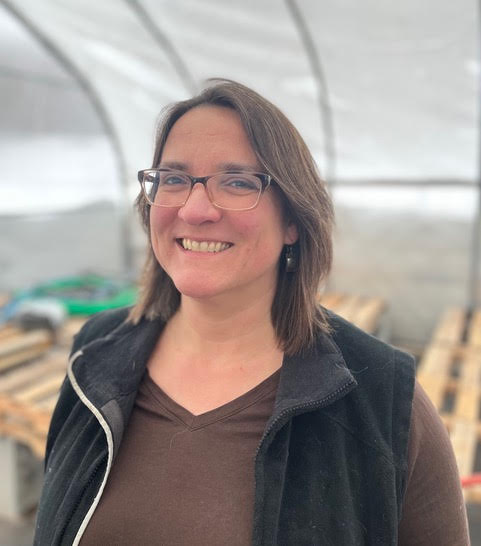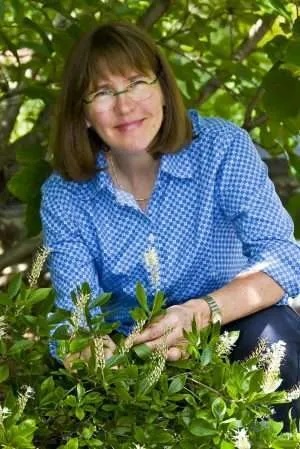
Welcome to the eighth annual
Keweenaw Native Plant Symposium
Featuring Kim Eierman
of
Ecobeneficial
Nationally known horticulturalist and landscape designer
Plus
Pollinator expert Kass Urban-Mead of the Xerces Society
Michelle Wietek-Stephens of U.P. Native Plants,
the Upper Peninsula’s largest native plant nursery
Saturday, April 12, 2025
9 a.m.–Noon
A FREE ZOOM WEBINAR ORIGINATING IN
UPPER MICHIGAN’S KEWEENAW PENINSULA
SPONSORS
WILD ONES KEWEENAW CHAPTER
KEWEENAW LAND TRUST
KEWEENAW INVASIVE SPECIES MANAGEMENT AREA (KISMA)
MICHIGAN STATE UNIVERSITY EXTENSION MASTER GARDENERS
Join us for a morning of fun and inspiring talks on the fascinating world of native plants!
Registration is free. After registering, you will receive an email with a link to the webinar. A reminder will be sent shortly before the symposium.
9 a.m.—Kass Urban-Mead
Pollinator Conservation Specialist, The Xerces Society
“Pollinators in the Woods? Exploring the Many Ways Wild Bees Nest and Forage in Woody Habitats”

Did you know that there are over 4,000 wild bee species in the United States? Most are solitary, don’t live in hives, and don’t even make honey. These wild, native pollinators have long, evolutionary relationships with our wildflowers and also provide important pollination services that ensure the stability of many of our favorite fruits, nuts, and vegetables.
Although we usually think of wild bees pollinating in our gardens, flower patches, and meadows, thoe are not the only places they can be found. In the northeastern U.S., up to two-thirds of wild bee species use forested habitats for at least part of their life cycles. Some only collect pollen and nectar from spring ephemerals, while others nest in rotting logs and in leaf litter deep in the woods. AND, did you know that bumble bees–beloved on your roses and garden plants–actually love nesting in the forest? And that apple orchard pollinators may be busily collecting forest canopy pollen before the apple orchards bloom? Come join Kass for an adventure exploring how wild bees use the woods, from the leafy forest floor to the tippy top of the canopy. We will connect these to some suggestions on forest stewardship for pollinators.
About Kass
With the Xerces Society, Kass Urban-Mead provides technical assistance on pollinator conservation in the Mid-Atlantic and Northeast region. She assists with planning, designing, installing, and managing habitat for pollinators and other beneficial insects, particularly in forested habitats. Kass also works with staff and research partners to develop technical guidelines and provide training on pollinator conservation practices.
Kass’s doctoral work at Cornell University characterized the wild bees active in early spring forests and forest canopies and how their movement between forests and orchards supports orchard pollination. Kass completed a master’s degree at Yale, worked for a summer at the Arnold Arboretum, and did ecological research in southern France. She grew up raising 4-H dairy goats in the Hudson Valley.
The Xerces Society for Invertebrate Conservation is an international nonprofit organization that protects the natural world through the conservation of invertebrates and their habitats.
10 a.m.—Michelle Wietek-Stephens
Designs by Nature U.P. Native Plants, LLC
“Butterfly Bonanza: Native Plants for U.P. Moths & Butterflies”

Michelle delighted the Keweenaw Native Plant Symposium audience three years ago with tales of her adventures starting a native plant nursery in an area where many locals dismissed her top quality product as “weeds.” This time, she will discuss the importance of moths and butterflies both as pollinators and as components of the local food chain; why what we plant matters to local moths and butterflies; and specific pairings of native plants for U.P. moths and butterflies.
About Michelle
What started in 2004 as a newlywed couple reintroducing natives to the yard of their starter home has blossomed into the region’s largest full-fledged native plant nursery, providing thousands of plants to major landholders and home gardeners alike. Located at Michelle’s century-old family homestead near Marquette, Designs by Nature—Upper Peninsula Native Plants, LLC, provides plants for education centers, service organizations, site remediation, landscaping, and home gardeners. Michelle is herself a U.P. native and an avid hiker, biker, observer of nature, and gardener. During her previous 15-year career as an environmental consultant, Michelle advised on environmental protection, site restoration, and wetland management. After making time for a growing family, Michelle established U.P. Native Plants in December 2020 with the help of her family and launched the website for this web-based business in March 2021.
11 a.m.—Keynote speaker Kim Eierman
Ecobeneficial LLC
“Selling Native Landscapes with Cues to Care”

To the uninitiated, native landscapes can be confusing – no perfectly-manicured lawn, no plants pruned into meatballs, and dead stems standing in winter! How do you get neighbors and passersby to accept and even appreciate your naturalistic garden? Cues to care may help. Learn how to show intent in your native landscape and demonstrate to others that you are gardening with purpose.
About Kim
Kim Eierman (rhymes with “fireman”) is the founder of EcoBeneficial LLC. She is an environmental horticulturist and ecological landscape designer specializing in native plants. Based in New York, Kim teaches at the New York Botanical Garden, Brooklyn Botanic Garden, The Native Plant Center, Rutgers Home Gardeners School and several other institutions.
Kim is an active speaker nationwide on many ecological landscape topics, presenting for industry conferences, sustainability events, corporate events, environmental organizations, and other groups interested in environmental improvements. Kim also provides horticultural consulting and native landscape design to homeowners and commercial clients, including landscape architects and engineers.
In addition to being a Certified Horticulturist through the American Society for Horticultural Science, Kim is an Accredited Organic Landcare Professional, a Steering Committee member of The Native Plant Center, and a member of The Ecological Landscape Alliance and Garden Communicators International.
Kim is author of the book The Pollinator Victory Garden: Win the War on Pollinator Decline with Ecological Gardening.
